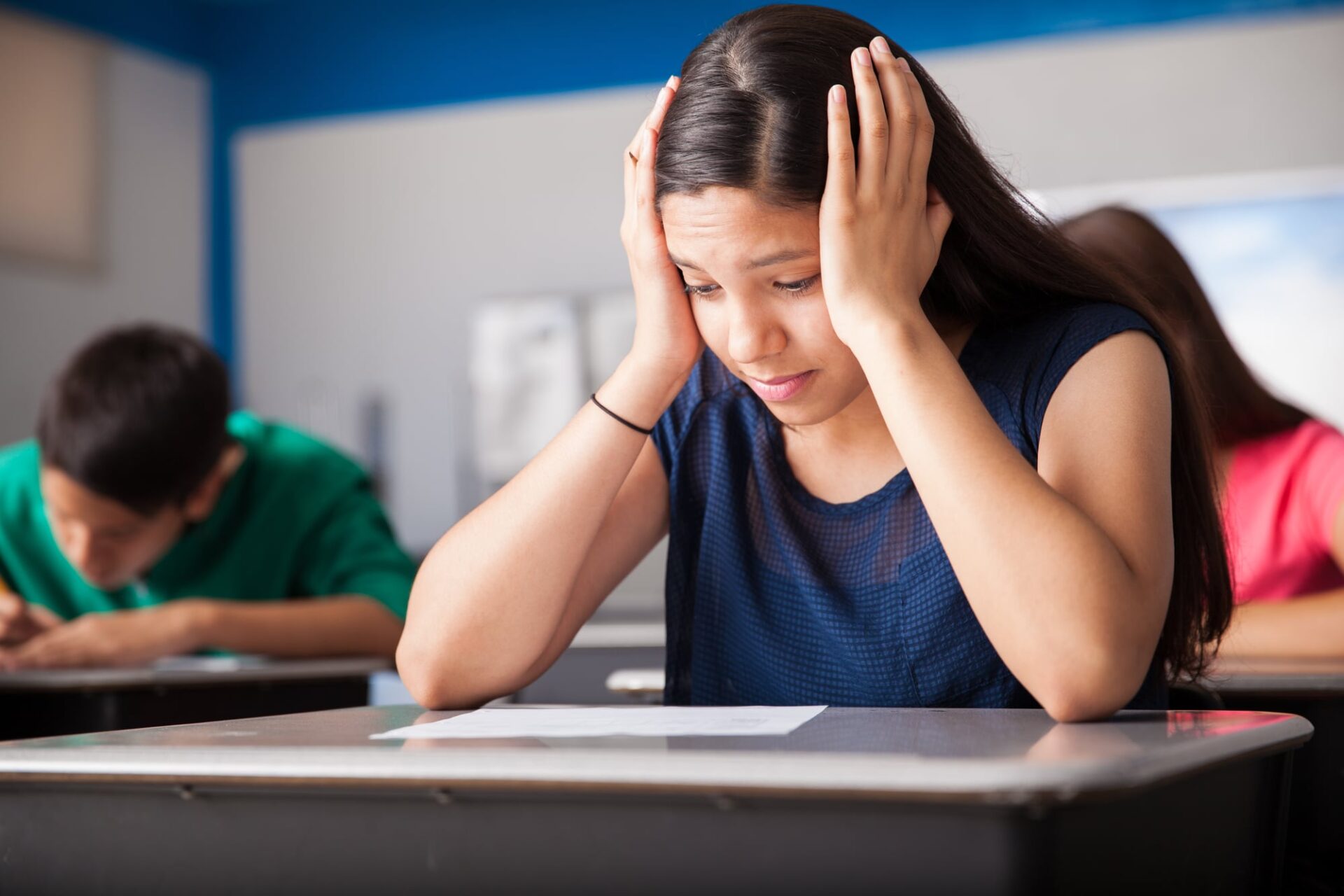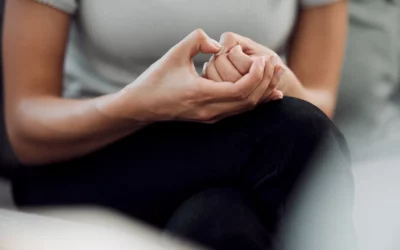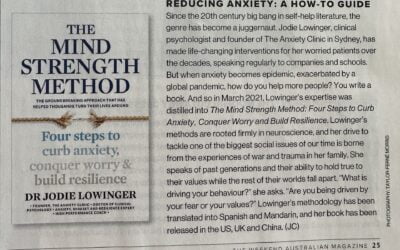My teenager feels anxious. How can I help?


My teenager feels anxious. How can I help?
In Australia, around 15% of people aged 16–24 experience an anxiety disorder each year. From school exams and friendships to TikTok, these influential years can have a big impact on one’s mental health. As the parent of a teenager or young person who may feel anxious, it can be tricky to know how best to support them.
While more teenagers and young people are becoming familiar with the concept of anxiety, and the language around it, they’re less likely than other age groups to seek professional help. In fact, according to the National Survey of Mental Health and Wellbeing, only 31 per cent of young women and 13 per cent of young men with mental health problems had sought any professional help.
With this in mind, it’s important to learn how you can talk with your adolescent or young person about their feelings of anxiety, and what professional support is available. In this article, Dr Jodie Lowinger, clinical psychologist, creator and author of The Mind Strength Method, and founder and principal of The Anxiety Clinic, provides a guide for parents.
So, what is teenage anxiety?
Based on their personality, your teen might have experienced feelings of anxiety during childhood that intensify as they’ve faced increased pressures or new triggers in adolescence, such as striving for academic success. Anxiety becomes a problem when that worry or fear is persistent or excessive, and gets in the way of achieving their full potential at school, work or in social relationships.
With more than 20 years’ experience in clinical psychology, Dr Jodie has a deep understanding of how anxiety impacts the minds of adolescents and young people. She and her team of clinical psychologists quite often find themselves sitting across from teenagers who reveal their parents just “don’t get it”.
“Being a teen often comes with a variety of stressors and pressures, from academics and sports to social life and social media, all of which can cause anxiety symptoms to feel out of their control,” Dr Jodie said.
For parents, recognising symptoms of anxiety is super important.
According to Dr Jodie:
“Adolescents seek validation and understanding, and parents should meet them where they are, regardless of whether the source of anxiety seems rational or not.”
What are the signs and symptoms of anxiety?
Anxiety can look different in different teenagers. If your teen is not themselves right now, watch out for some of the most common physical signs and symptoms, including:
- Persistent worrying
- Excessive fearfulness
- Inability to unwind
- Sleep disturbances
- Avoidance of situations causing fear
- Excessive shyness
- Social withdrawal and relationship issues
- Difficulty focusing and decision-making
- Fear of social humiliation
- Struggles in academic, social, or family situations
- Physical symptoms like stomach aches, headaches, muscle tension, sweating, nausea, and diarrhea
- Nightmares
- Episodes of panic attacks.
This, of course, is not an exhaustive list. It’s an indicative list, for your reference.
Now what? Start by initiating conversations about anxiety
If you notice some signs of anxiety, the first thing to do is talk to them about it. Open up the lines of communication by starting a conversation about anxiety, focusing on active listening and empathy. Teenagers and young people want to be heard.
As parents, we can be quick to jump in to add our two cent’s worth of information or our own stories. Mostly, what happened in “our day” is irrelevant to them. Increase the likelihood of your teenager being vulnerable with you in hard times by creating a supportive, kind and non-judgemental environment. This can help you get a better idea of how they’re coping and what support they may need.
Whether your teenager opens up to you straight away or not, one of the initial steps you can take to lessen any feelings of blame or embarrassment is to normalise anxiety and recognise it as a distinct challenge for your teen.
Model your own wellness
These days, life is ‘full’, right? We’re juggling lots of balls, and the cost-of-living crisis is real, putting pressure and stress on all of us, every day. Aim to be intentional about managing these challenges in a healthy way, if possible. Prioritising your own physical, emotional, and mental wellbeing sends a clear message that self-care is important.
Consider adopting practices such as mindfulness, regular exercise, maintaining a healthy, balanced diet, and building a strong community of social support. By living and breathing these practices, you’ll be a positive role model for your teen. Even if they don’t openly admit it, most adolescents and young people take cues from their parents.
Seeking professional help for teen anxiety
The best approach for managing your teenager’s anxiety will depend on its type, severity, and underlying causes. What you should know is anxiety is treatable, and there are many resources available to help, including clinical psychology services.
You don’t need a referral for your teen to see a psychologist. However, to claim a Medicare Rebate, your eligibility for a Mental Health Plan will need to be assessed by your GP, psychiatrist or paediatrician.
Keen to connect with an anxiety professional? Book now at The Anxiety Clinic for adult, teen and child psychology services. For more on anxiety, Dr Jodie is also a renowned keynote speaker and high-performance coach.





